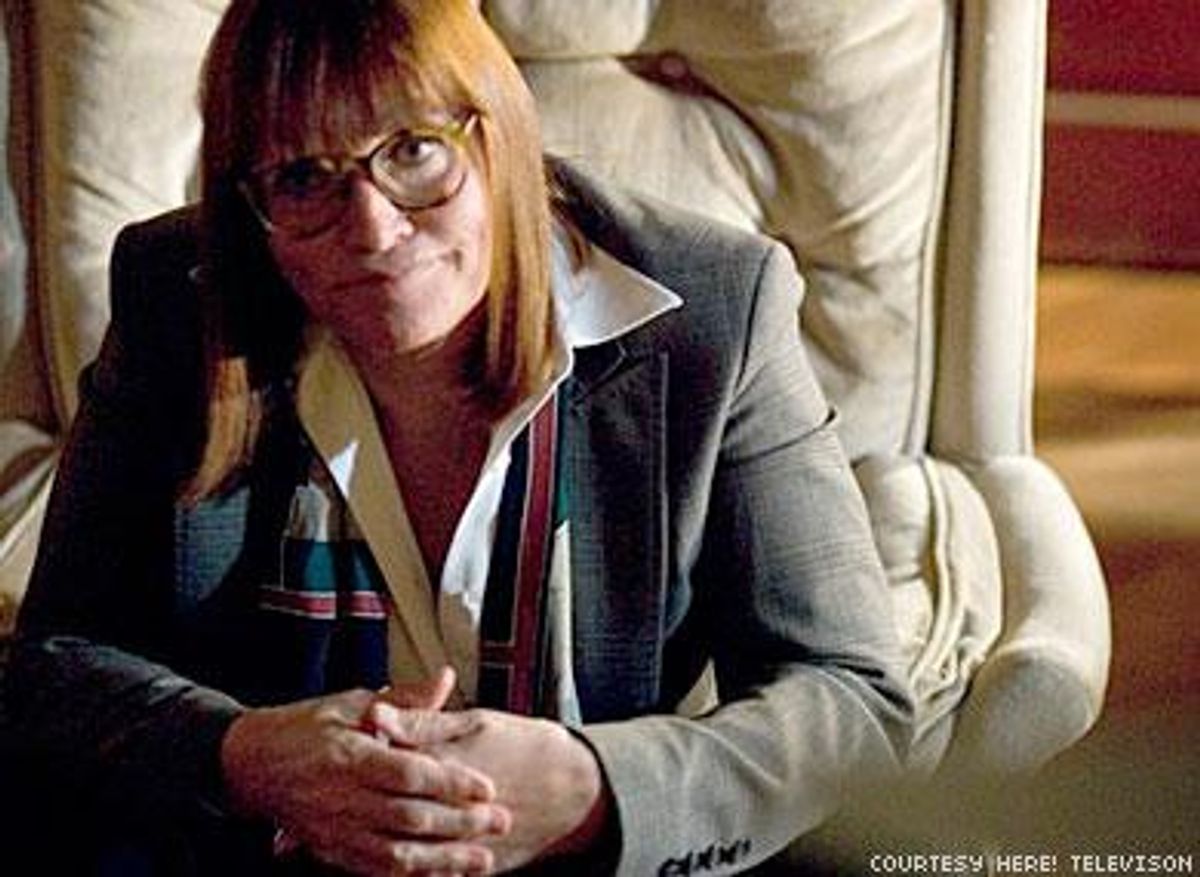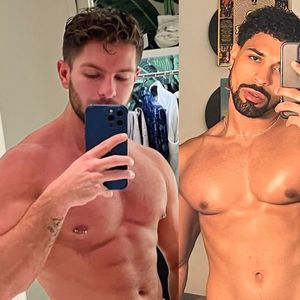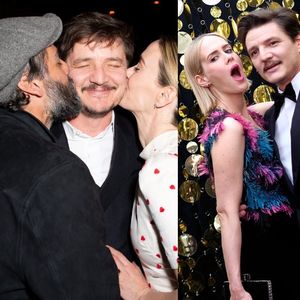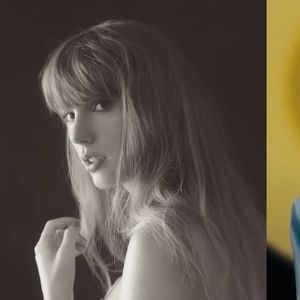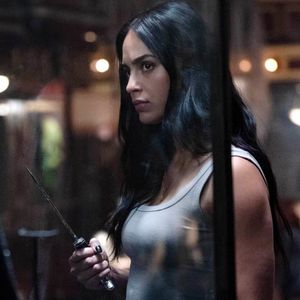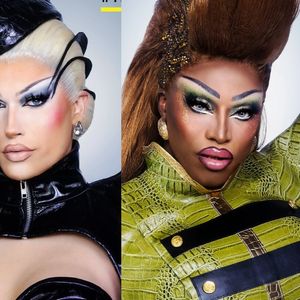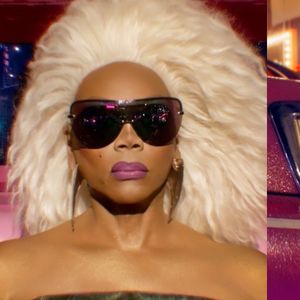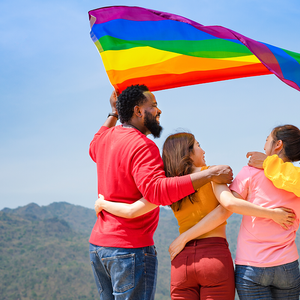Margot Kidder soared to
movie stardom in the 1970s, a decade commonly regarded as one
of American cinema's finest. With her feisty wit and striking
looks, Kidder made a strong early impression in the horror
classics
Black Christmas
and
Sisters
before becoming a household name for her iconic performance as
Lois Lane in 1978's smash hit
Superman.
Since then she's appeared on the cover of
Rolling Stone,
hosted
Saturday Night Live,
and starred in numerous films and television series. It's been
quite a remarkable life for someone who grew up in Canadian
mining camps dreaming of becoming a movie star.
Although Kidder left
Hollywood a few years back for a calmer existence in rural
Montana, she still answers its call from time to time, making
memorable appearances in such hit television series as
Brothers & Sisters, Smallville,
and
The L Word,
Most recently, she received glowing reviews for her portrayal
of one half of a lesbian couple dealing with antigay prejudice
and a rising body count in here! TV's entertaining and
politically minded murder mystery
On the Other Hand, Death: A Donald Strachey Mystery,
debuting on DVD this month. Advocate.com recently spoke with
Kidder about the experience of "playing gay," her
illustrious career as both an actress and an activist,
and how "coming out of the closet" as someone struggling
with bipolar disorder changed her life.
Advocate.com: So, Margot, I understand you're living a nice, quiet life
out in Montana, far removed from the Hollywood circus ...Margot Kidder:
I am indeed. It is the last best place.
Well, we're lucky to see you back on-screen when we can.
Tell me, what drew you to
On the Other Hand, Death: A Donald Strachey Mystery
?
Well, besides it being a job offer, which is always nice [
laughs
], it just seemed like a really great mystery, and I loved the
character. It passed the Kidder "Is it socially
acceptable?" test -- you know, does it treat women in the
proper way? And it ended up being one of the most joyous
experiences I've ever had because the guys who run here! and
the director, Ron Oliver, treated me like a princess, so I was
a very happy camper making this.
Now, is this your first time playing a gay character?
No, I've played a couple gay characters. In fact, I was a gay
character in a movie called
Never Met Picasso.
And what's to play anyway? Someone's sex life is, you know,
what happens behind bedroom doors -- the rest of it is you
playing a person. So I don't see it as a big leap.
Was there anyone who inspired your characterization of
Dorothy Fisher in the film?
I based some of it on a very dear friend here in Livingston,
and then we watched it together and she cracked up. She said,
"Here I am, a gay woman, watching my straight friend portray
a gay woman." And I hadn't told her I based it on her [
laughs
]. So it was fun. But you know, the thing that people tend to
jump over when they talk about portrayals is that, generally,
if the script's well written, the portrayal can be found in the
writing. If you look at the writing of this particular piece,
which is very good and very sophisticated, she's there.
The
Los Angeles Times wrote a review of your performance that reads like a love
letter. Did you see it?
I did see it, thank you. It was very nice.
Are reviews something you've heeded throughout your
career?
No, because when you get the bad ones they're devastating. I
remember one from my mid 20s that began "Margot Kidder, with
her unfortunate thighs," and I remember going "ahhh!" Eh,
it's just people writing their opinions.
Let's go back to the beginning. So how'd a nice Canadian
girl like you end up in Tinseltown?
Well, at a very young age I decided I was going to be a -- I
didn't say
actress
to myself, I said
movie star.
I was living in mining camps in the Canadian north, and I'd
look at these movie magazines, which fascinated me with this
wonderful world of these people in Hollywood, and I wanted to
be like them. My diaries, my little-girl diaries, are full of
things saying "I want to go to Hollywood and be a movie
star." And I didn't even know what acting was, but I knew
that somehow came with the turf. So I was in school plays and
stuff. I was two years ahead of myself in school, so I was at
[college] at 16 and then I went,
That's not how I'm going to find my fortune, here in
Toronto.
And from there I went to Hollywood, at 18, and then kept on
working. I was too dumb to know that I could possibly fail,
because I was so young and naive [
laughs
].
Early in your career you shared a beach house with actress
Jennifer Salt at Nicholas Canyon Beach in Malibu that served as
a hangout for not-yet-famous filmmakers like Martin Scorcese,
Brian De Palma, and Steven Spielberg. That period has become
the stuff of Hollywood legend, hasn't it?
I guess it has. For us it was just a bunch of broke kids
passing the hat for dinner. We didn't think we were unusual,
although we had a great degree of cockiness. We were sure we
could change the entertainment business and the world and
everything else all at once. It was a wonderful time, and we
had a great sense of community. After it all sort of fell apart
and everybody got successful and went off to do their own
thing, I never got that sense of community again until I moved
back to Livingston. I think it's an essential in the human
experience.
Any anecdote you can share from that particular period that
gay readers might get a kick out of?
Oh, well, once I dropped mescaline and lost my boyfriend to
another man. Oh, no, it wasn't mescaline, it was the love drug.
What the hell was the love drug?
Ecstasy?
MDA. It wasn't ecstasy because it didn't have speed in it. In
those days, the pre-cocaine days, we took drugs only once in a
while. The guy who wrote the book [Peter Biskind, author of
Easy Riders, Raging Bulls
] makes it seem like we were all loaded all the time, which
wasn't true at all. I mean, pot, maybe. We were very innocent.
We were deeply innocent people. So we took the love drug to
find love or something, and I remember looking over and there
was my boyfriend necking away with another man, so the love
drug worked for him [
laughs
].
Early in your career you appeared in the TV series
Banacek,
and there's a moment where you make fun of the fact that George
Peppard's detective character goes by one name, "like
Superman," which now plays like some kind of cosmic hint at
your future. Do you think you were fated to play Lois Lane?
No, I don't believe in that shit. I think I went and worked
hard and auditioned and got the part because I did a good
audition.
How'd it feel taking on a character that had already been in
the cultural zeitgeist for over 40 years [in the
Superman
comics, TV series, and early movies]?
I wasn't really aware of that at all. I wasn't allowed to read
comics as a kid, and we didn't have TV. So I was way up in the
Canadian north, and although I'd heard of Superman, I didn't
really know anything about him or Lois Lane -- not till I got
the part. Even then my knowledge was sketchy and I based my
character on the script and what the writers wrote.
One of my favorite moments in the series is when you punched
out that bitch Ursa in
Superman II.
Was that punch as good for you as it was for audiences?
Oh, you liked that? At one point I actually hit her, which was
a great to-do on the set. It was by accident, of course. She's
fun, Sarah [actress Sarah Douglas]. She's a good girl.
At the end of
Superman II,
Superman gives Lois a kiss that eliminates her memory of their
romantic relationship. Do you think we'd all be better off if
our relationships ended with an amnesia kiss?
Oh, no! You don't want to forget. I mean, you get to my age and
you look back at this tapestry your life has made, which
everyone has (unless they've locked themselves in a closet and
never gone out), and all those romances, failed or not -- well,
they're all failed, I suppose, because they all end -- are part
of it. You don't want to forget any of that. Although they do
have a pill coming out that erases people's bad memories. God
save us all, they want to use it for post-traumatic stress
victims. What will the pharmaceutical industry think of
next?
In
Superman III,
Lois Lane appears only briefly before disappearing on a
vacation to Bermuda-
[
Interrupting
] That's because I called the producers contemptuous human
beings in the press!
Well, the movie lost me at that point, because as a young
kid I was more interested in following Lois on her Bermudian
adventures. Think she had fun?
She did. She had a good time [
laughs
].
In 1979 you starred in the horror classic
The Amityville Horror,
based on the real-life account of the Lutz family, who fled
their supposedly haunted Long Island home after 28 days. It was
later discovered that they returned on the 29th day to host a
garage sale. What do you think -- Amityville horror or
Amityville hoax?
I don't believe in any of that stuff; I just thought it was a
good horror movie. It was a movie [
laughs
]. I don't think people have to think it's real to enjoy
it.
At this point,
Amityville Horror,Black Christmas,Sisters,
and
Superman
have all been given the remake/reboot treatment. What do you
think was special about the 1970s that makes it so difficult
for the remakes to replicate the magic of those films?
Now, I am not in the movie world anymore, so I don't know what
the hell's going on down there -- [movies] are just fun to
watch. One of the problems, I think, overall, is that movies
cost so much money. I mean, we made movies for $300,000. Now
the budgets are as much as that of a small nation. The desire
of the studios to make nothing but blockbusters is the problem;
you can't take risks on small movies if you're required to make
a blockbuster.
I know you've been an outspoken opponent of some of our
government's military efforts in the past few decades. Why do
you think society celebrates Lois Lane asking tough questions
on the big screen but resists when the actress playing her does
the same in real life?
First of all, it's very American. It's very odd, this notion
that artists shouldn't talk about political stuff, as if it
doesn't affect us as much as it affects everybody else. In most
countries artists are de facto involved in the political
process because they often lead the way -- they often write the
articles and are at the forefront of a lot of the voices that
are objecting to Neanderthal policies, such as the ones we were
stuck with for the last eight years. I think it's easier in a
comic book to go,
Oh, this isn't real.
I understand you recently became a U.S. citizen?
I did. I couldn't stand back and watch and not be able to vote
any longer. The last eight years were so bad -- it was like
being in a nightmare we're just waking up from. People didn't
want to look. We suffered a collective amnesia. And
now one of the results of that, one of the many, is this
hideous economic collapse. I'm working now with our political
group -- our website is
MontanaWomenFor.org
; you should go look us up, we're pretty hot! -- and
this month we're focusing on our food pantry; at this point
every town and city has got to make all politics local.
In the film
On the Other Hand, Death,
a character says "We don't pick our fights, our fights pick
us." You're an inspiration to many for your courageous fight
to understand and come to terms with bipolar disorder. How did
"coming out of the closet" as a public figure dealing with
this very common issue change your life?
Well, coming out of the closet was not my idea [
laughs
]. I mean, it was all over the news. It's not like I had any
options. But it was great -- it was the uncaging of a secret
that was not a secret to anyone who knew me, but it was a big
weight off my back. I didn't have to pretend any longer or try
desperately to go into hiding when the symptoms hit. One of the
things that allowed that piece of my story to be easy was that
I got letters from all over the world from people. They all
started out "My family doesn't talk about this, so I've never
talked about this," and I go,
Wait a minute -- there are that many people whose families
have this so-called deep dark secret? Why aren't we all talking
about it?
Everybody knows
somebody who's been through something like this. So it was very
easy to speak about it, and now it's just part of my story --
it's not hard at all. It's been almost 14 years now since
that happened. No, 13, without an episode of either bipolar or
depression or mania, so I think I can safely say I'm cured. I
now speak in opposition to conventional psychiatric wisdom that
says you have to stay on all these drugs to manage your
symptoms for the rest of your life, even if you feel like a
vegetable. I think that's a hideous, hideous extension
of the prejudice against people who suffer from so-called
mental illnesses, and it's one of the great travesties in our
society and it's all done so the pharmaceutical industry can
make extraordinary profits and I find it obscene.
Well, Margot, you truly are an American iconaEUR|
You angel! I just lasted. I just got older and lasted this
long, that's all.
If you could tell the young girl from Canada all that lay
before her, would she have believed you?
Yes, she would have when she was young [
laughs
]. You know, I was only in Hollywood a week when I got the
ingenue lead in a big movie Norman Jewison directed [
Gaily, Gaily
]. I was so naive it never occurred to me I should realize how
lucky I was. It took me until my mid 30s to realize,
You really lucked out, Kidder,
instead of going,
Oh, yeah, this is what's supposed to happen.
That's the wonderful thing about being young: You don't have a
clue!
